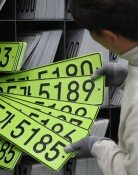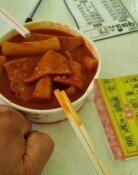The emergency funds should be promptly delivered
The emergency funds should be promptly delivered
Posted April. 24, 2020 07:37,
Updated April. 24, 2020 07:37
The Bank of Korea announced on Thursday that South Korea’s GDP contracted 1.4 percent year-on-year in the first quarter of the year. This is the lowest since the last quarter of 2008 when the GDP growth fell by 3.3 percent following the outbreak of the global financial crisis. In particular, domestic demand for travel, hotels and restaurants plunged by 6.4 percent, which is the lowest since the nation was hit by the Asian financial crisis with the record low of minus 13.8 percent in the first quarter of 1998.
Unfortunately, this is just the beginning of the coronavirus recession. “There are growing concerns that, starting from the second quarter of the year, the global recession will take hold, further damaging the real economy and the job market,” said Minister of Economy and Finance Hong Nam-ki at a ministerial meeting on Thursday. While domestic demand, the self-employed, young part-timers mostly took a hit in the first quarter, the impact is expected to be expanded to exporters, large companies and those who have regular jobs from the second quarter of the year.
The global sales of Hyundai Motor Company decreased by 11 percent year-on-year in the first three months of this year while its sales in the United States and European countries are expected to drop by more than 30 percent. In the semi-conductor industry, SK Hynix recorded an operating profit of 800.3 billion won in the first quarter, 41 percent down from the same period of last year. Despite such sharp decline, it is considered one of the lucky ones that were saved from the full impact of COVID-19.
The International Monetary Fund (IMF) projects global growth to contract by 3 percent and South Korea by 1.2 percent. However, this is an optimistic forecast based on an assumption that the global economy will be back on track in the second half of the year. However, it seems unlikely that the global supply chain will quickly recover given the spread of COVID-19 in the United States and European countries. Therefore we need to prepare for the worst case scenario.
Having had five emergency economic meetings, the government has announced multiple packages that are worth 240 trillion won to help the public and businesses. It is now asking for a third supplementary budget to implement what it calls South Korea’s New Deal. All packages have the word “emergency” in them, but they have not yet reached so many small and medium-sized companies and self-employed people. At times like this, the speed of delivery is as important as the volume of the support. If the government fails to deliver the support promptly and seamlessly, it will be too late when it is delivered.
A failure to formulate consistent plans and implement them without a delay will lead to a series of bankruptcies, massive layoffs and a crisis of the national economic system. This is why President Moon Jae-in asked Minister Hong to set up a task force to respond to an economic emergency. However, as seen in controversy surrounding the emergency relief grant, there is too much political pressure on Minister Hong right now. President Moon should stand by him so that he can do his job.
Headline News
- N. Korea launches cyberattacks on S. Korea's defense companies
- Major university hospital professors consider a day off each week
- Italy suffers from fiscal deficits from ‘Super Bonus’ scheme
- Inter Milan secures 20th Serie A title, surpassing AC Milan
- Ruling and opposition prioritize spending amid tax revenue shortfalls







